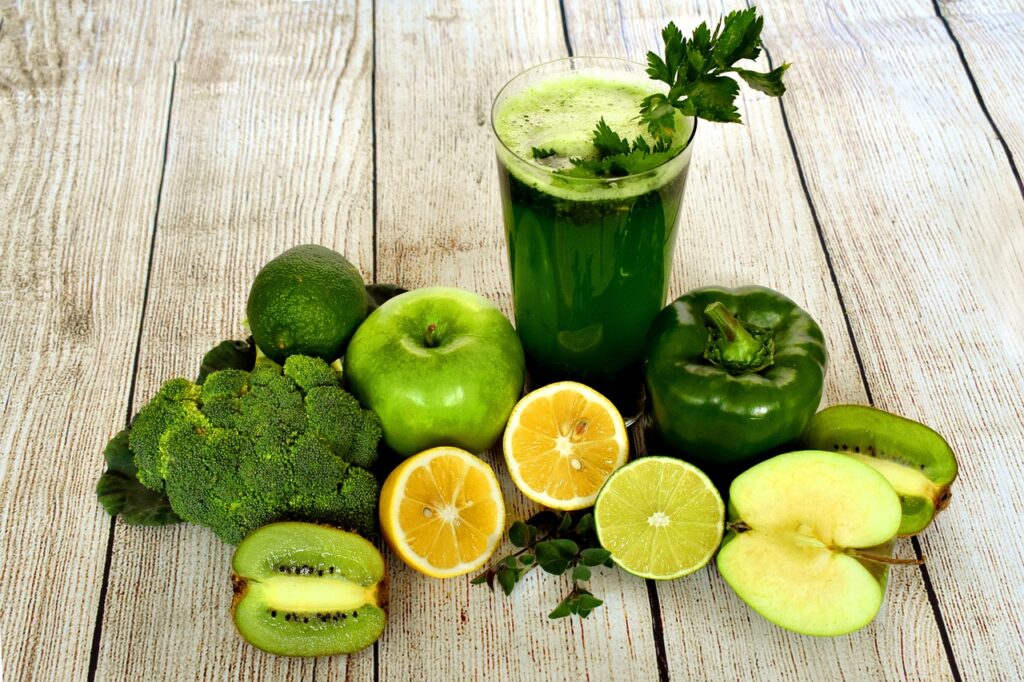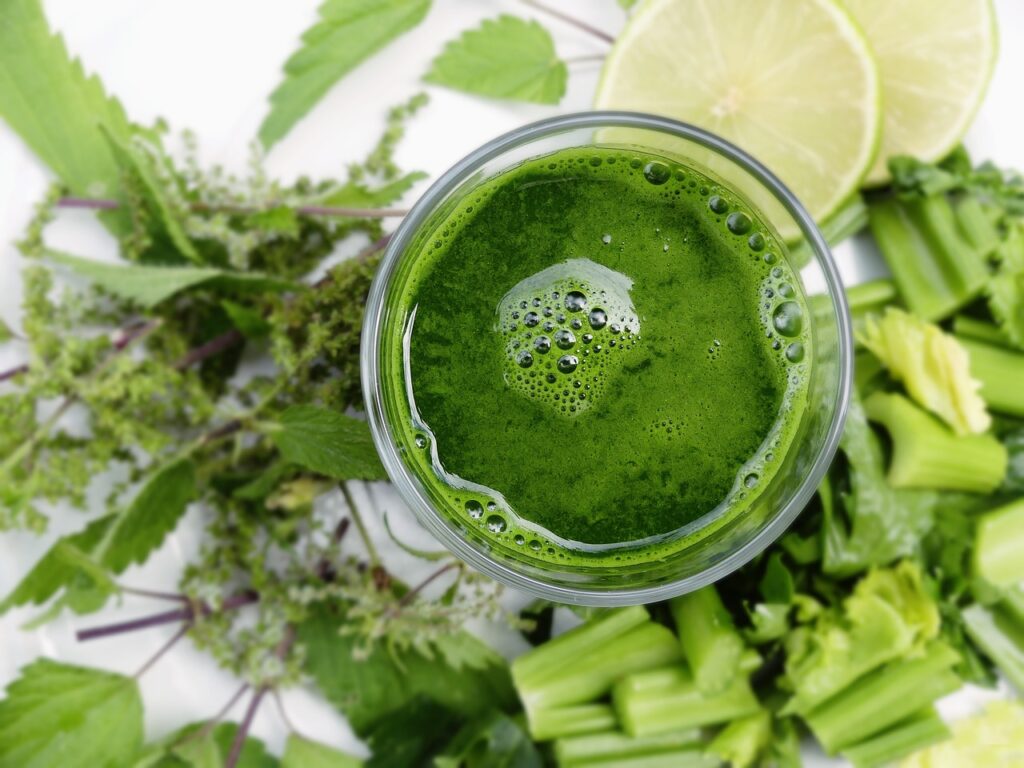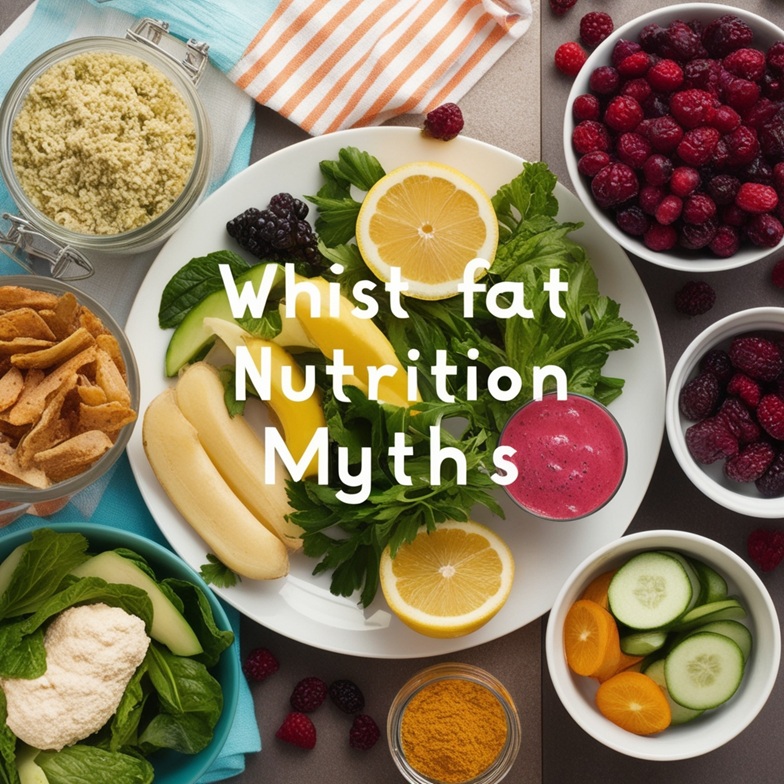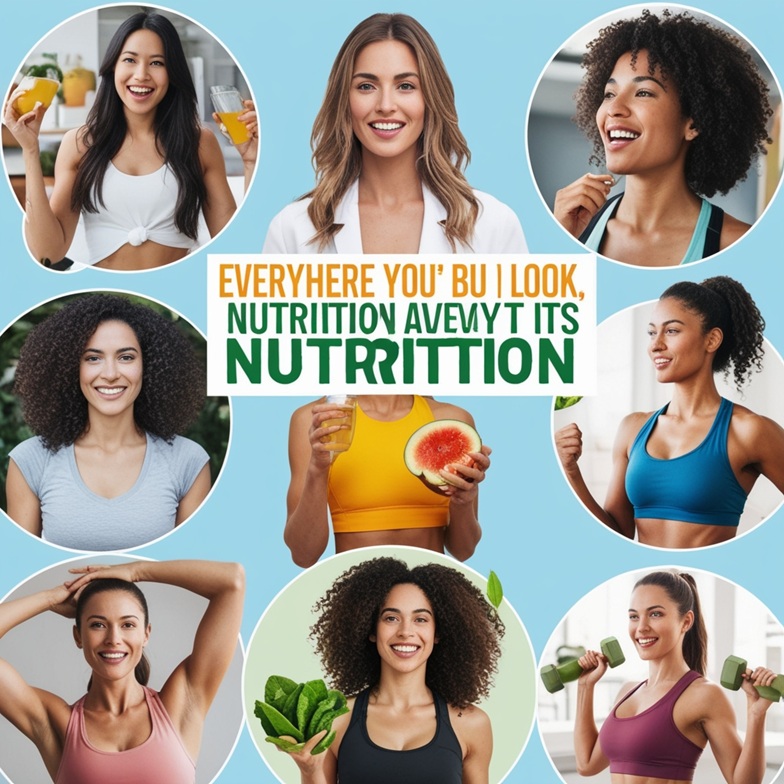Introduction
Nutrition Myths Busted , Everywhere you look, nutrition advice is swirling around. Social media influencers, blogs, and even your well-meaning friends might be doling out health tips that sound convincing but aren’t necessarily true. Some of these myths have been around for decades, causing confusion and even harm. That’s why it’s more important than ever to separate fact from fiction.
Today, we’re going to tackle some of the most common nutrition myths and lay out the science behind them. Whether you’ve been avoiding carbs like the plague or loading up on detox teas, this guide will set the record straight. Let’s dive into the truth behind the myths. Nutrition Myths Busted
Myth 1: Carbohydrates Are Bad for You
Understanding Carbohydrates
Carbs have a bad rap, but they’re an essential part of a balanced diet. They’re the body’s primary source of energy, especially for your brain and muscles. The misconception likely stems from the association between refined carbs and weight gain. Nutrition Myths Busted
Complex Carbs vs. Simple Carbs
Not all carbs are created equal. Simple carbs, like those found in sugary snacks, are quickly digested, leading to energy spikes and crashes. Complex carbs, such as those in whole grains, fruits, and legumes, provide sustained energy and vital nutrients.
Role of Carbs in Energy and Performance
For athletes and active individuals, carbs are indispensable. They fuel performance and help in recovery. Cutting them out can lead to fatigue and hinder your fitness goals. Nutrition Myths Busted

Myth 2: Fats Should Be Avoided
Different Types of Fats
The fear of fats stems from their high calorie content, but fats are crucial for your health. They help in hormone production, vitamin absorption, and even brain function. Nutrition Myths Busted
The Importance of Healthy Fats
Healthy fats, like omega-3s found in fish and nuts, reduce inflammation and support heart health. On the other hand, trans fats, commonly found in processed foods, should be limited as they increase bad cholesterol. Nutrition Myths Busted
Debunking Cholesterol Misconceptions
For years, dietary cholesterol (found in eggs, for example) was linked to heart disease. Recent research shows that for most people, dietary cholesterol has a minimal impact on blood cholesterol levels. Nutrition Myths Busted

Myth 3: Eating Late at Night Causes Weight Gain Nutrition
Caloric Timing vs. Caloric Balance
Weight gain is more about total calorie intake than when you consume them. If your late-night snacks push you over your daily caloric needs, you’ll gain weight. Nutrition
How Nighttime Eating Affects Metabolism
While metabolism slows slightly at night, your body still burns calories. The real risk of late-night eating lies in the type of food—snacking on chips or ice cream late at night can lead to overeating. Nutrition Myths Busted
Myth 4: Detox Diets Are Necessary
Your Body’s Natural Detox System Nutrition
Your liver, kidneys, and even your skin are natural detoxifiers. They work around the clock to remove toxins, making detox teas and diets unnecessary. Nutrition
The Harmful Side of Detox Products Nutrition
Many detox products can cause dehydration, nutrient deficiencies, and even gastrointestinal distress. Some are downright dangerous, containing unregulated ingredients. Nutrition Myths Busted

Myth 5: All Processed Foods Are Bad
Processed Foods on a Spectrum
Not all processed foods are harmful. There’s a big difference between minimally processed items like canned beans and ultra-processed junk food.
Minimally Processed vs. Ultra-Processed Foods Nutrition Myths Busted
Minimally processed foods can be convenient and nutritious. The key is to focus on the ingredient list and nutritional content.
Myth 6: Gluten-Free Is Healthier for Everyone
What Is Gluten?
Gluten is a protein found in wheat, barley, and rye. It’s perfectly safe for most people but problematic for those with celiac disease or gluten sensitivity.
Who Actually Needs to Avoid Gluten?
Unless you have a medical reason, going gluten-free offers no significant health benefits. Gluten-free products can sometimes be lower in fiber and higher in sugar. Nutrition Myths Busted
Myth 7: You Need 8 Glasses of Water Daily
Individual Hydration Needs
The “8 glasses a day” rule is a general guideline. Your actual hydration needs depend on factors like activity level, climate, and body size.
Water Content in Foods and Beverages
Many foods, such as fruits and soups, contribute to your daily water intake. Listen to your body and drink when you’re thirsty.
Myth 8: Sugar-Free Equals Healthy
Understanding Artificial Sweeteners
Sugar-free doesn’t always mean healthy. Products with artificial sweeteners can still contain unhealthy fats and additives.
Risks of Excessive Use
Overusing sugar substitutes may lead to cravings for sweeter foods and potential metabolic effects.
Myth 9: Spot Reduction Works for Weight Loss
Why You Can’t Target Fat Loss
Fat loss occurs throughout the body, not in specific areas. Spot-reducing exercises might tone muscles but won’t eliminate fat in targeted zones.
The Science Behind Full-Body Fat Loss
Combining strength training with cardio helps burn fat more effectively, leading to overall weight reduction.
Myth 10: Fresh Produce Is More Nutritious Than Frozen
Nutrient Retention in Fresh vs. Frozen
Frozen produce is often picked and frozen at peak ripeness, retaining most of its nutrients. Fresh produce may lose some nutrients during transportation and storage. Nutrition Myths Busted
When Frozen is the Better Option
For convenience and cost-effectiveness, frozen produce is a great alternative, especially for out-of-season items.

Myth 11: High-Protein Diets Are Dangerous
Misconceptions About Protein and Kidney Health
Protein is often blamed for kidney damage, but this concern mainly applies to individuals with pre-existing kidney issues. Nutrition Myths Busted
Benefits of Protein for Muscle and Weight Management
A high-protein diet helps in building and maintaining muscle, aids in satiety, and supports weight management.
Myth 12: All Calories Are the Same
Why Calorie Quality Matters
A calorie from a nutrient-dense food like an avocado provides more benefits than an empty calorie from a sugary snack. Nutrition Myths Busted
Nutritional Density vs. Empty Calories
Focus on foods that offer vitamins, minerals, and other nutrients along with calories.
Myth 13: Organic Foods Are Always Healthier
Nutritional Comparisons
Organic foods may have fewer pesticide residues, but their nutrient content is similar to conventionally grown foods.
Pesticide Residues and Health Impacts
For most people, the health benefits of eating more fruits and vegetables outweigh the risks of pesticide exposure.
Myth 14: You Need to Eat Every Few Hours to Stay Healthy
Meal Timing and Metabolism
The idea that frequent meals boost metabolism is a myth. What matters most is the total food intake and its quality.
Whether you prefer three square meals or multiple small snacks, choose a pattern that fits your lifestyle and keeps you satisfied.
Myth 15: Supplements Can Replace a Balanced Diet
What Supplements Provide
Supplements can fill nutritional gaps but shouldn’t replace whole foods. Whole foods offer fiber, antioxidants, and phytochemicals not found in supplements.
Why Whole Foods Are Non-Negotiable
Fruits, vegetables, and other whole foods provide synergistic effects that are vital for optimal health.
Conclusion
Navigating nutrition myths can be tricky, but arming yourself with evidence-based knowledge is the first step toward making informed choices. Always question sensational claims and seek advice from credible sources like registered dietitians or scientific studies. Remember, good nutrition is about balance, variety, and sustainability.
FAQs
1. What should I consider when researching nutrition advice?
For information supported by scientific research, consult reputable sources like peer-reviewed journals or registered dietitians.
2. How can I tell if a diet trend is legitimate?
Verify whether the trend is in line with accepted health recommendations and is backed by long-term research.
3. Are “superfoods” necessary for a healthy diet?
No, while they are nutrient-dense, a balanced diet is more important than focusing on specific foods.
4. How can I find a personalized diet plan?
Consult a registered dietitian who can tailor a plan based on your health, goals, and preferences.
5. Is it safe to follow celebrity diets?
Not necessarily. Many celebrity diets lack scientific backing and may not be sustainable or suitable for everyone.

